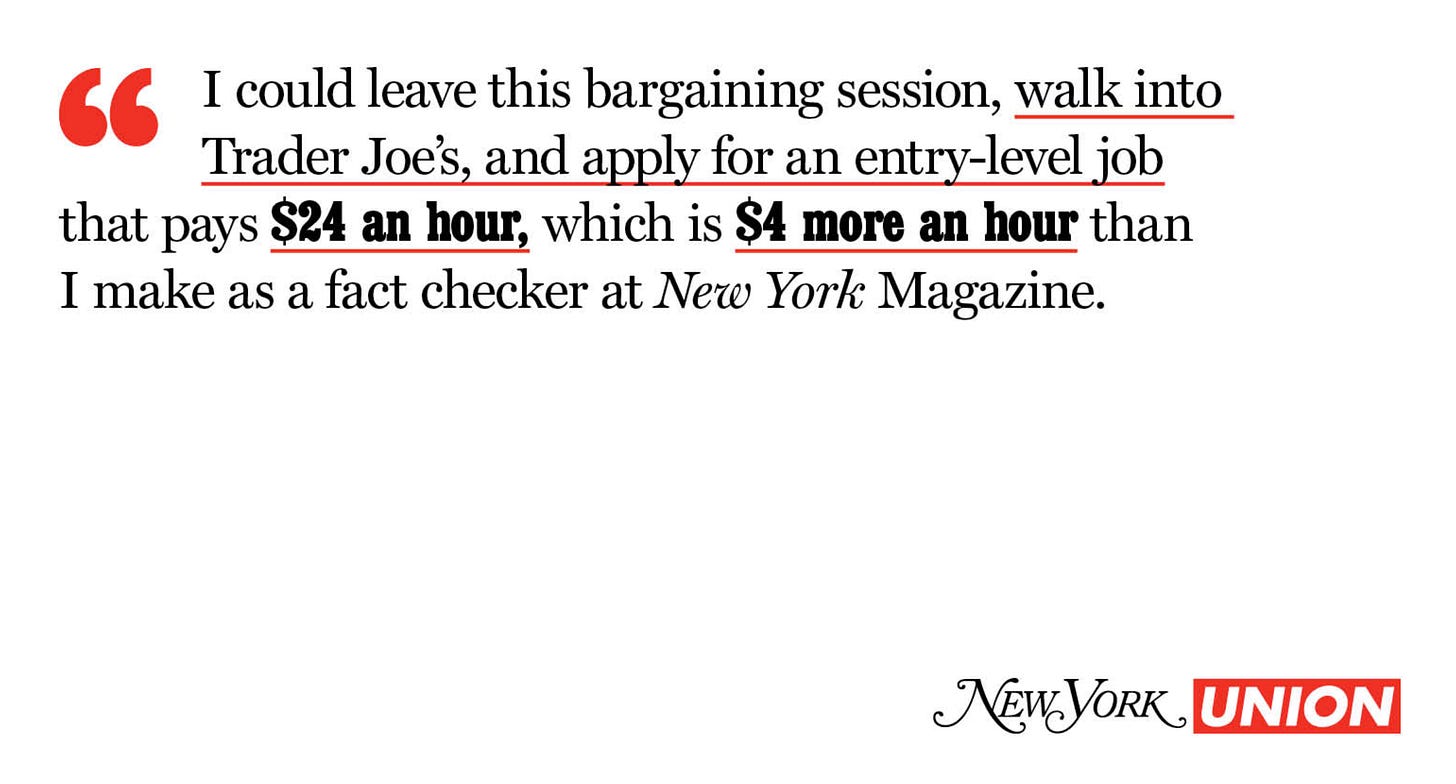Take this job and shove it.....
In The Critic this month, I write about two recent books on our relationship with work. The pandemic moment has led people to reassess their relationship with their careers (and others to have their source of income pulled out from under them, regardless).
The white-collar agonising over jobs and status also brings out oblivious gems, such as this from the NYMag union:
The obvious implication is that this person, with their BA or MFA or whatever, shouldn’t have to consider employment at a grocery store, even if that job pays more than they get now. Or the more cynical interpretation: “how dare those proles at the grocery store make more than I do?!”
To be underpaid, but working at a magazine in Manhattan, at least puts them in the social and cultural milieu they feel they deserve. To work in retail would be a social step down, even if (apparently) not a financial one. We see the same thing in academia, with people working at terribly paid adjunct jobs, when they absolutely would make more working full-time at Starbucks. But they wouldn’t be able to say “I’m a professor”.
Just as some people seem to vote against their economic interests, people make life choices that are against their economic interests: because they value something else more.
Defining oneself by one’s job is particularly hard in jobs that are inherently precarious. Freelance work bleeds all over your life, in the same way that academic work does (for better or worse). I’ve had 9-5 jobs, and the kind of jobs that you can only do when on-site (there’s no pressure in those jobs that you should be somehow “doing more” when at home in front of the TV).
But with research and writing, there’s often the nagging sense one should be doing more. A job that can be done “anywhere”, people will expect you to do anywhere. “You can work from home!” can easily become an expectation that you are on call, even at home. I’m not the first to note that advances like the mobile phone and home internet helped to blur these boundaries, and the pandemic has led many people to find “working from home” a tyranny rather than a freedom.
I recall an older prof at Cambridge who was reported to never have adopted email. His students and colleagues had to send him notes. I also worked as a PA to someone who never used a computer (and yes, this was well into the 2000s!), and had me print out all her emails, to which she would hand write replies, that I would then send. She had a PhD in management. I wonder how many people have managed that in the “working from home” covid era.


